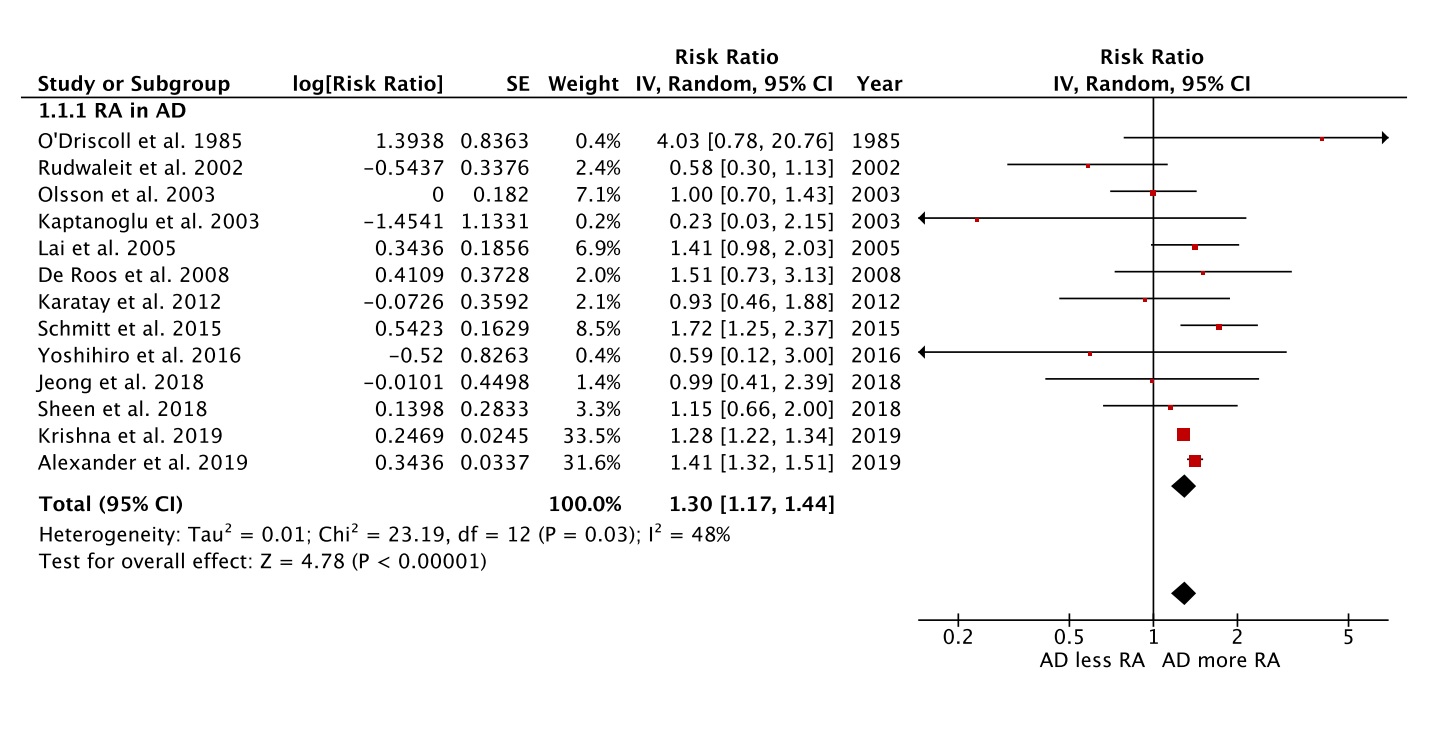Session Information
Date: Sunday, November 8, 2020
Title: Epidemiology & Public Health Poster III: Inflammatory Rheumatic Disease
Session Type: Poster Session C
Session Time: 9:00AM-11:00AM
Background/Purpose: Recent observational studies have suggested that patients with atopic dermatitis (AD) may have a higher risk of several non IgE-mediated inflammatory disorders, such as inflammatory bowel disease, systemic lupus erythematosus and Sjogren syndrome. The association between AD and rheumatoid arthritis (RA) is also described although results from previously published studies are conflicting. The current study aimed to combine all available data to investigate whether patients with AD had a higher risk of developing RA using systematic review and meta-analysis technique.
Methods: Systematic review was conducted using Medline and EMBASE database up to November 2019 using search strategy that comprised of terms for “atopic dermatitis” and “rheumatoid arthritis”. Eligible cohort study must consist of one cohort of patients with AD and another cohort of comparators without AD. Then, the study must follow participants in both groups for incident RA and must report relative risk (RR), incidence rate ratio (IRR), hazard risk ratio (HR) or standardized incidence ratio (SIR) with 95% confidence intervals (CIs), comparing the incidence of RA between the groups. Eligible case-control study must recruit cases with RA and controls without RA. Then, the study must explore the prior history of AD of both groups and report odds ratio (OR) with 95% CIs comparing the prevalence of prior history of AD between the groups. Point estimates with standard errors were retrieved from each study and were combined together using the generic inverse variance method.
Results: The electronic search identified 21,824 records from the two databases. After two rounds of review, a total of 13 studies (four cohort studies and nine case-control studies) met the eligibility criteria and were included into the meta-analysis. The meta-analysis found that patients with AD had a significantly higher risk of incident RA than individuals without AD with the pooled RR of 1.30 (95% CI 1.17 to 1.44; I 2 48%).
Conclusion: The current systematic review and meta-analysis found a significantly higher risk of incident RA among patients with AD.
 Forest plot of the meta-analysis of risk of incident rheumatoid arthritis in atopic dermatitis patients
Forest plot of the meta-analysis of risk of incident rheumatoid arthritis in atopic dermatitis patients
To cite this abstract in AMA style:
Rittiphairoj T, Charoenngam N, Ponvilawan B, Tornsatitkul S, Wattanachayakul P, Rujirachun P, Ungprasert P. Atopic Dermatitis and Risk of Incident Rheumatoid Arthritis: A Systematic Review and Meta-analysis [abstract]. Arthritis Rheumatol. 2020; 72 (suppl 10). https://acrabstracts.org/abstract/atopic-dermatitis-and-risk-of-incident-rheumatoid-arthritis-a-systematic-review-and-meta-analysis/. Accessed .« Back to ACR Convergence 2020
ACR Meeting Abstracts - https://acrabstracts.org/abstract/atopic-dermatitis-and-risk-of-incident-rheumatoid-arthritis-a-systematic-review-and-meta-analysis/
